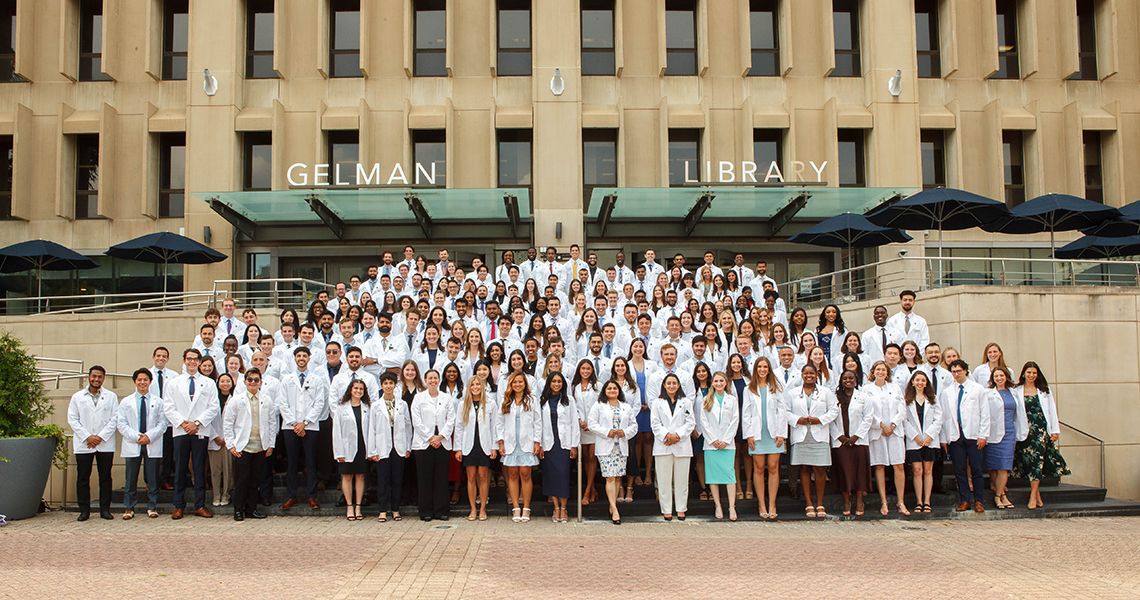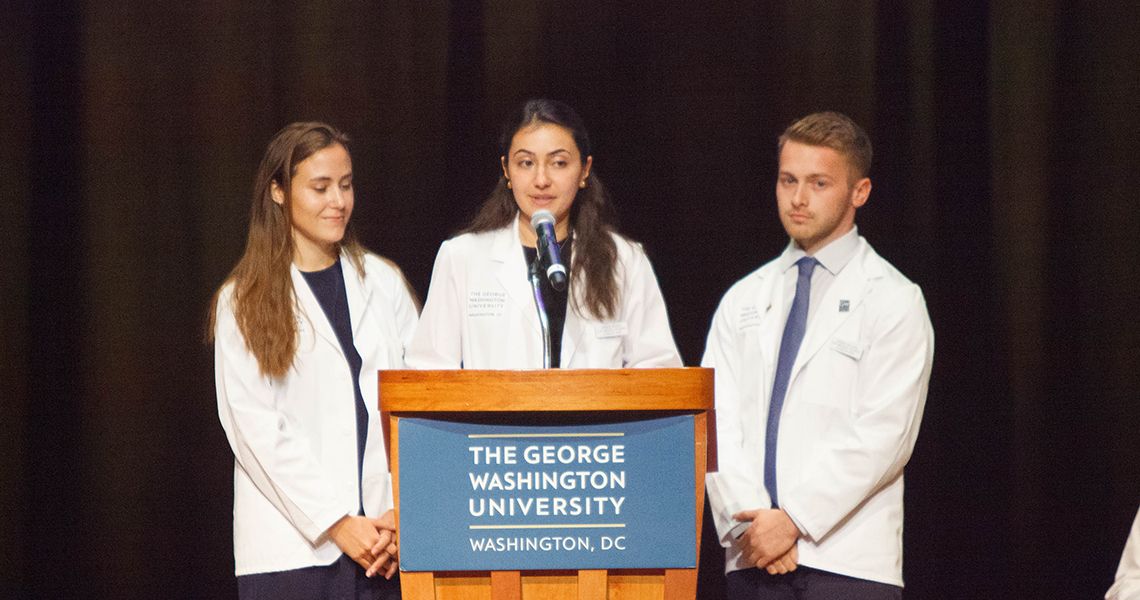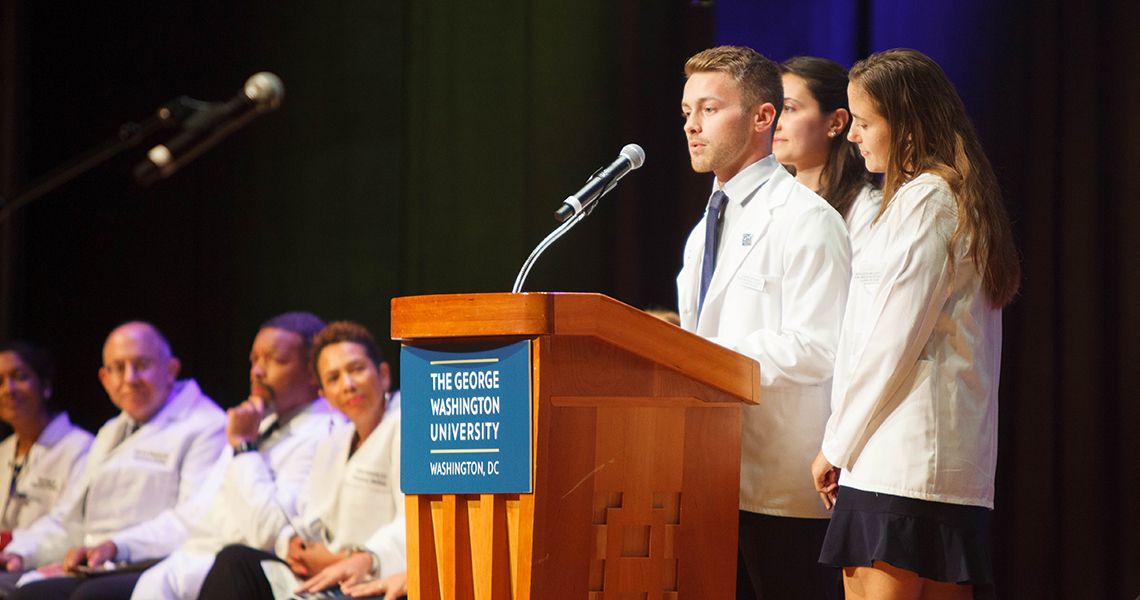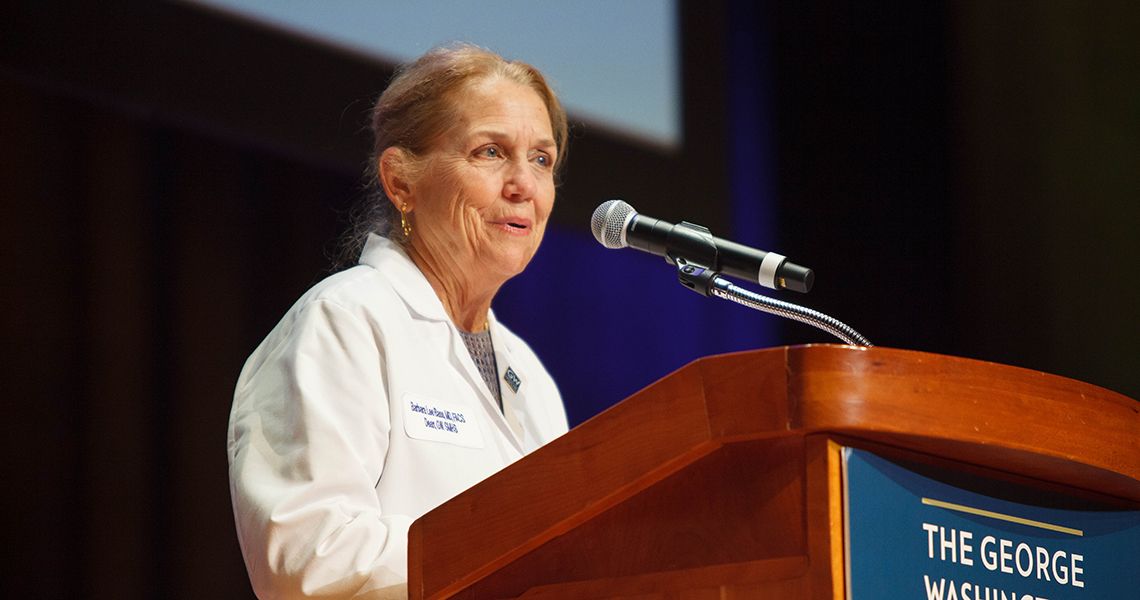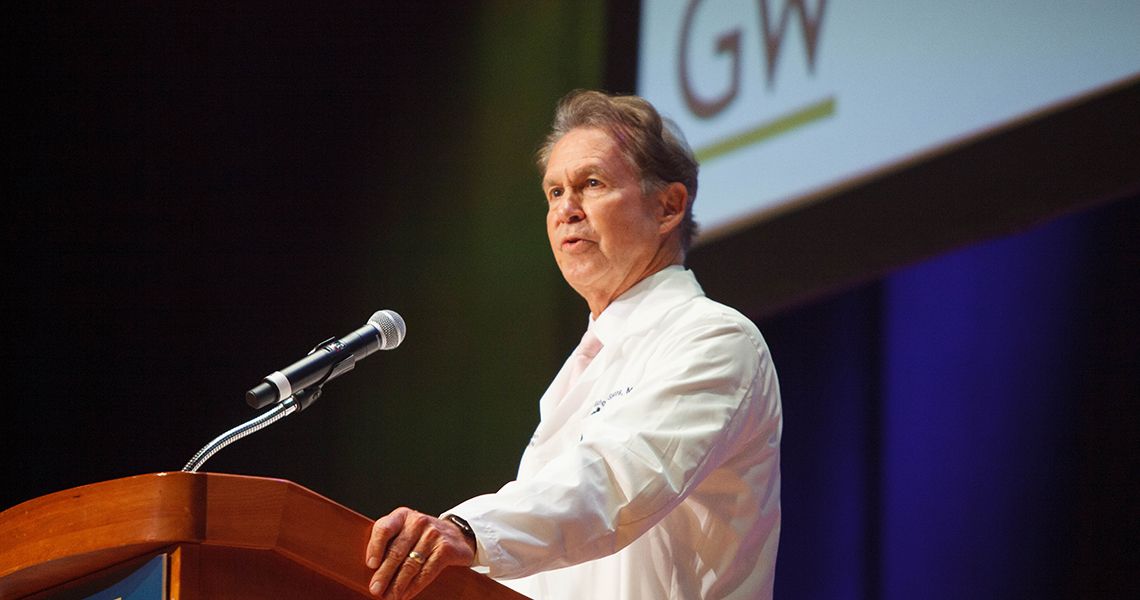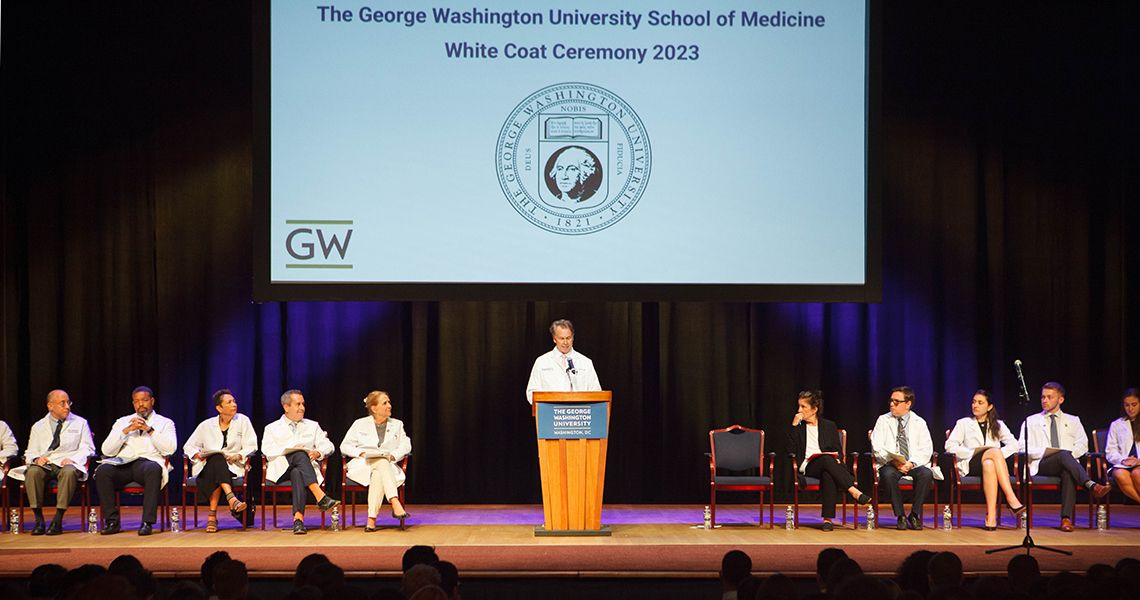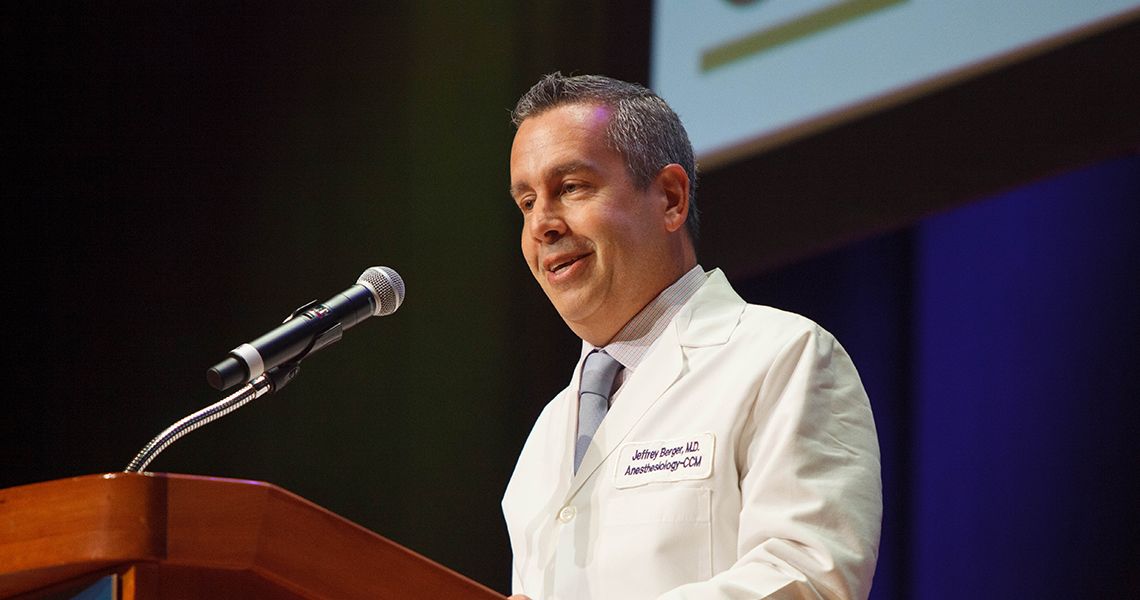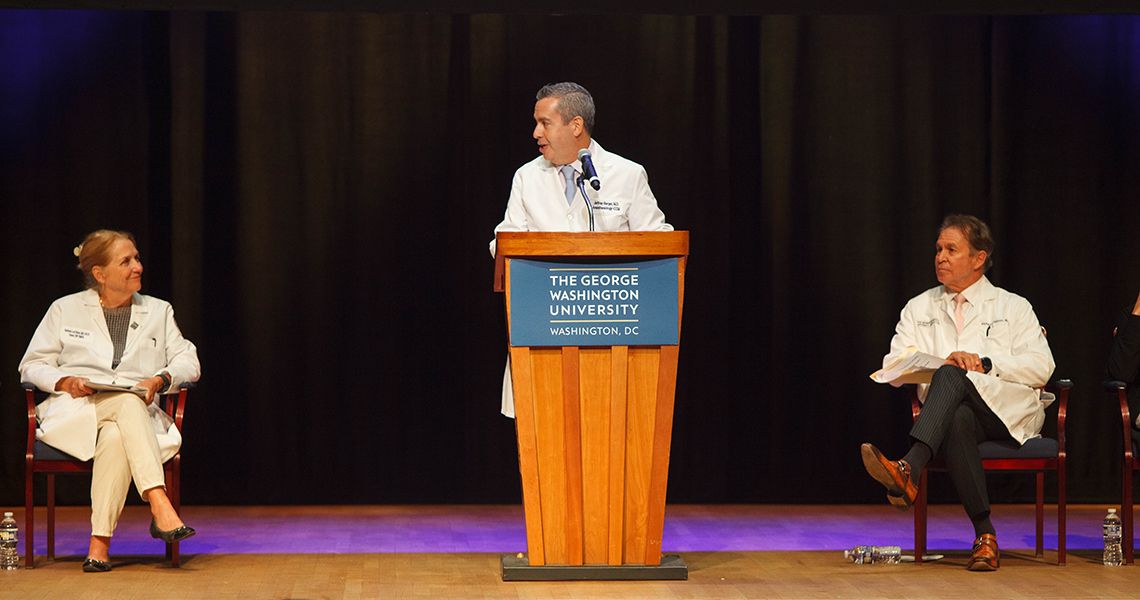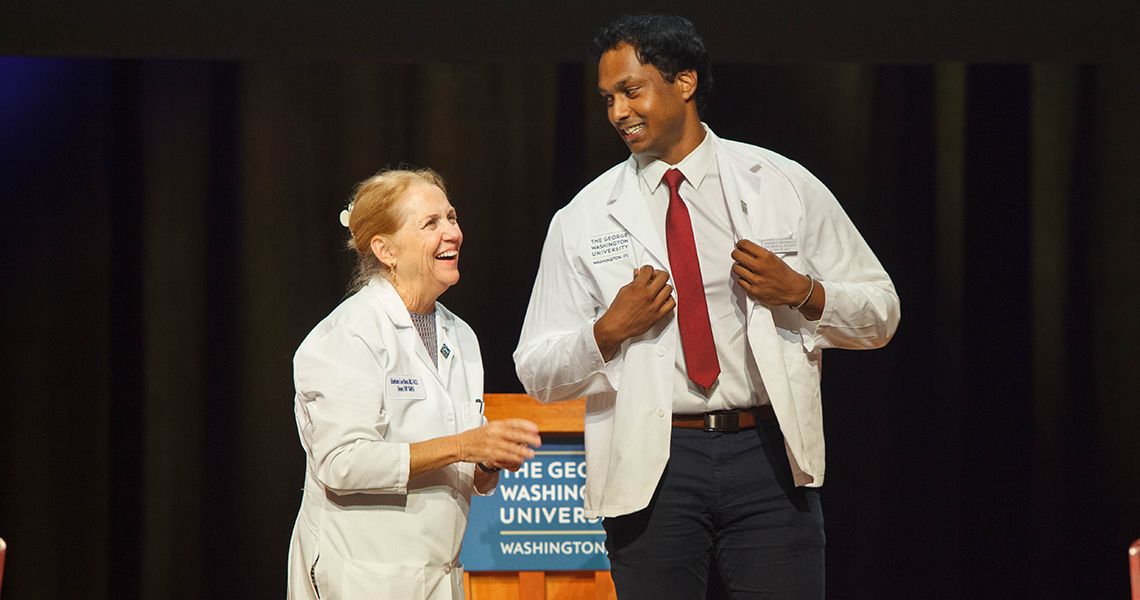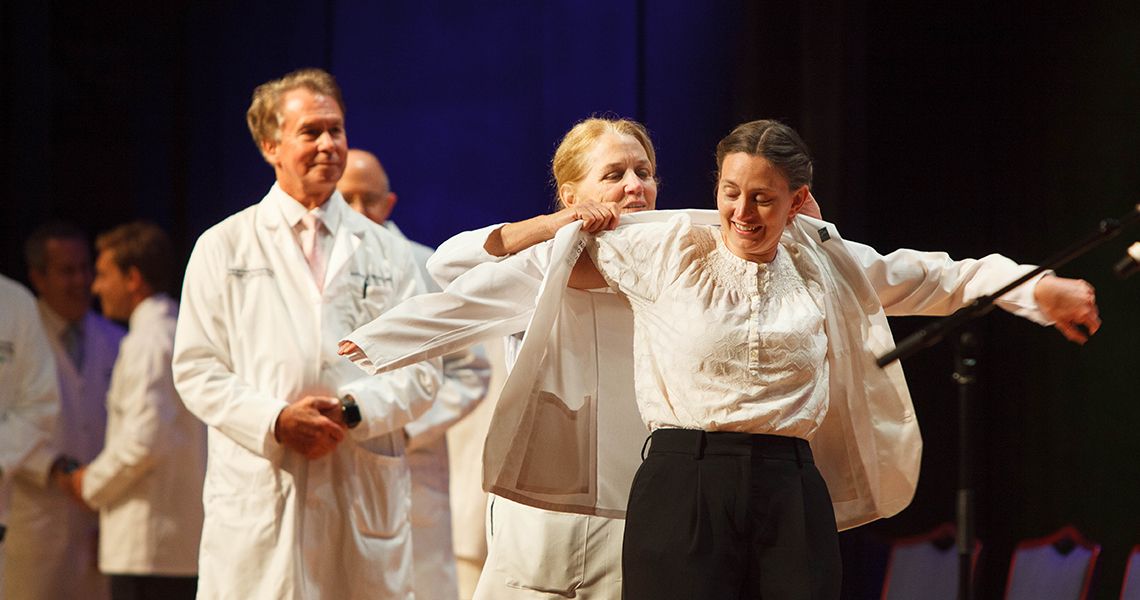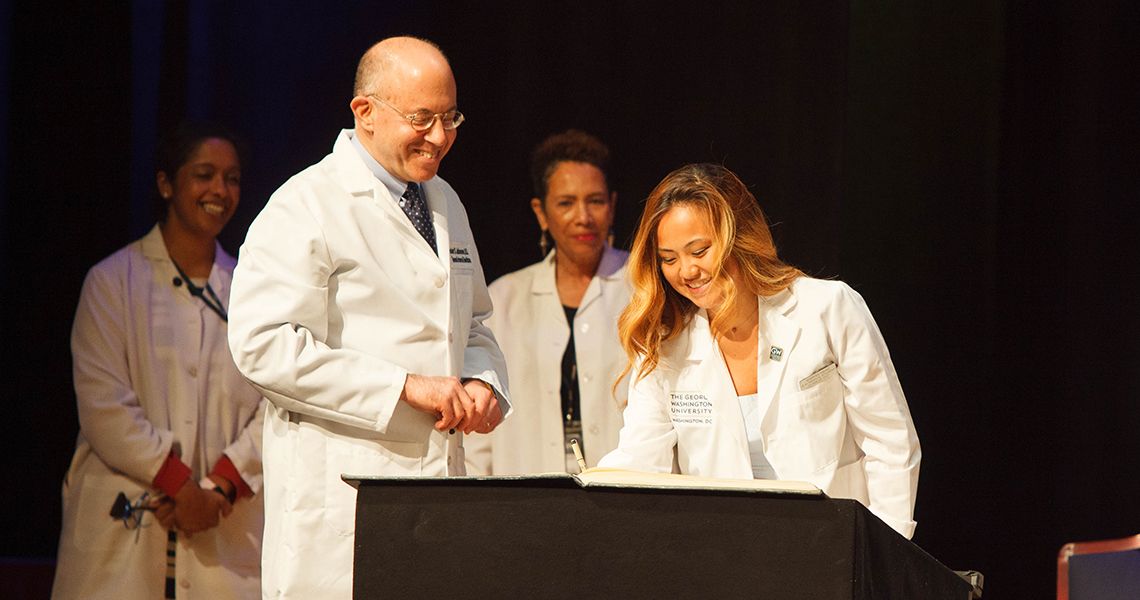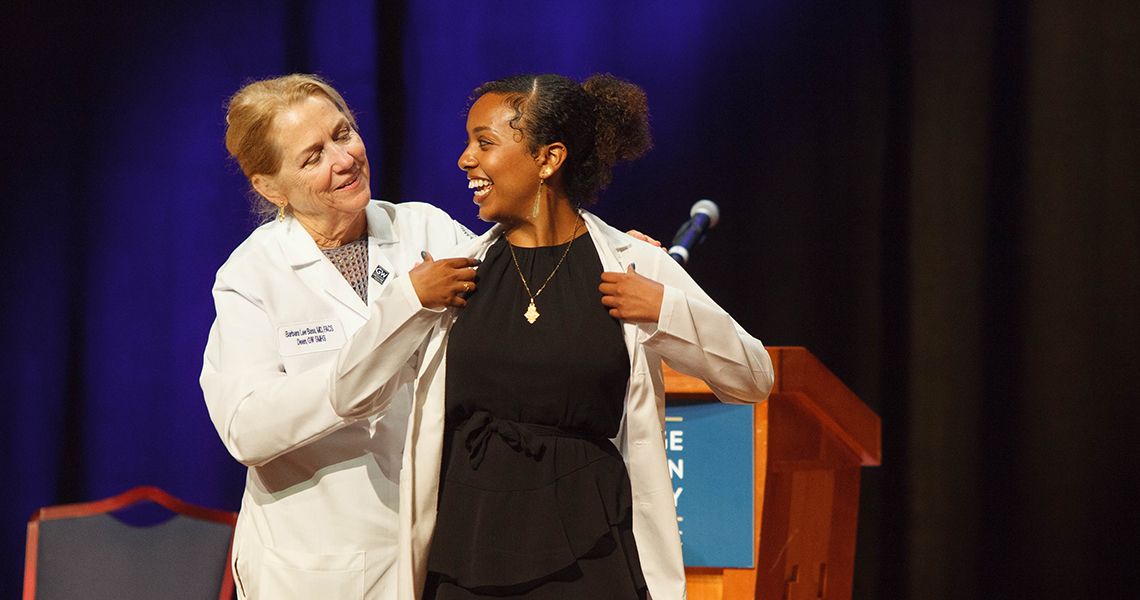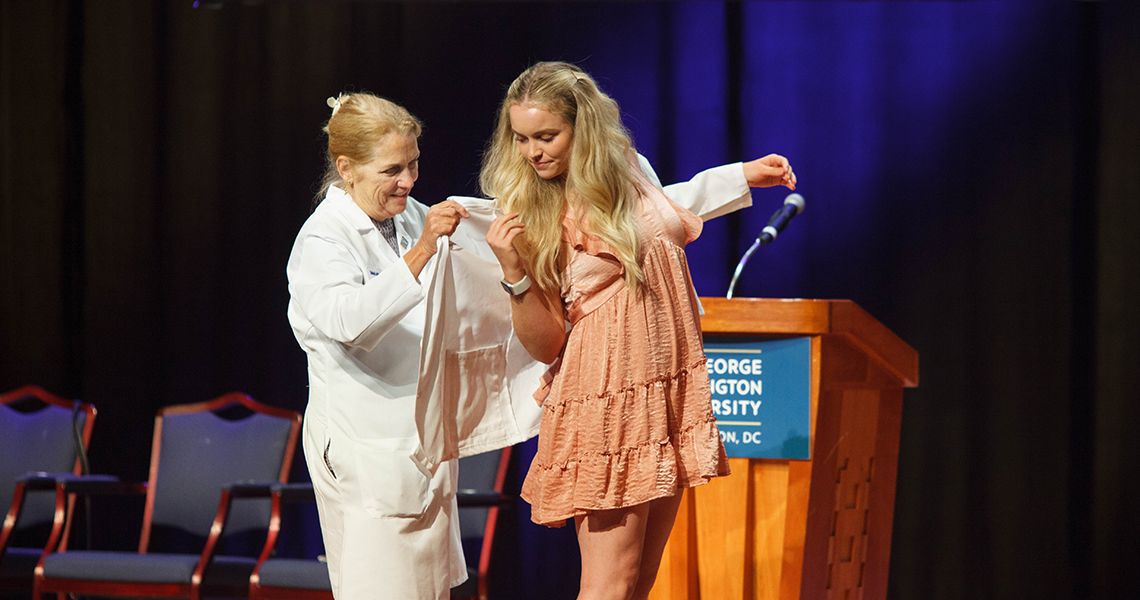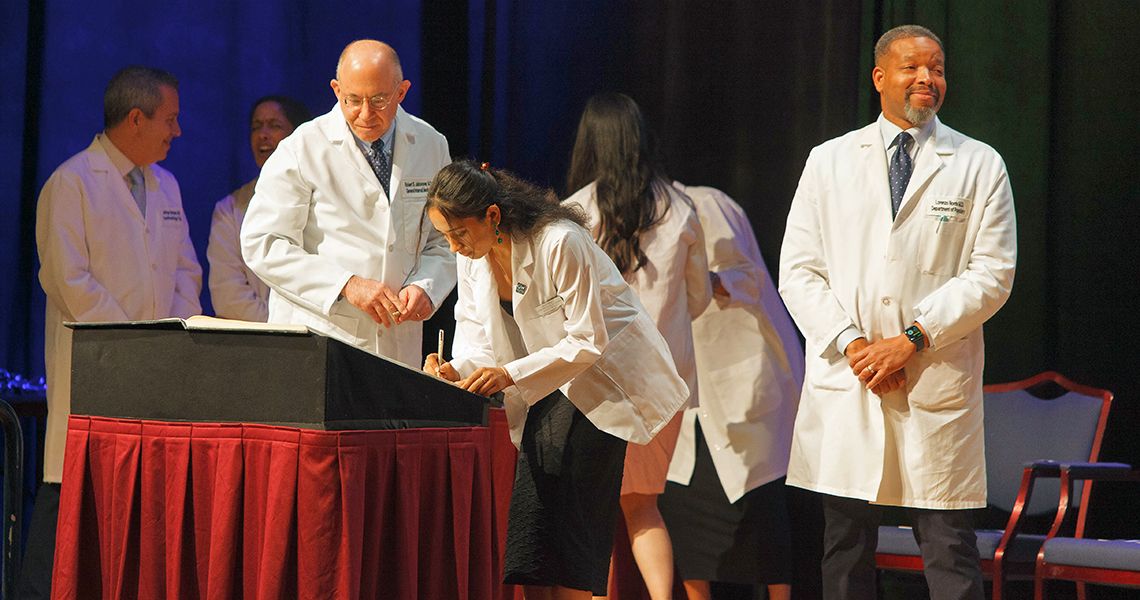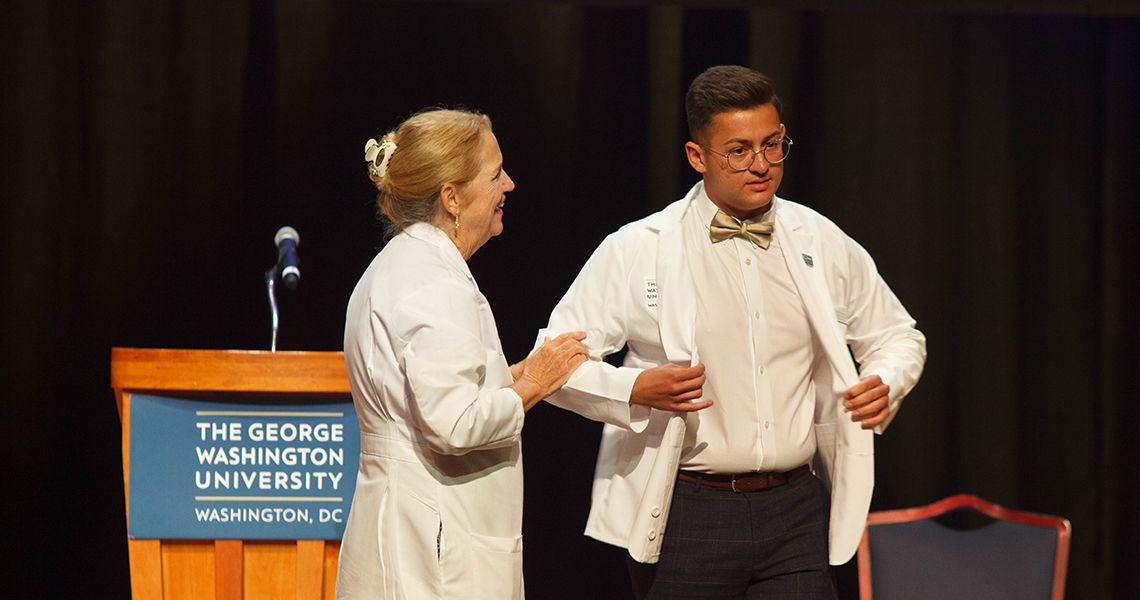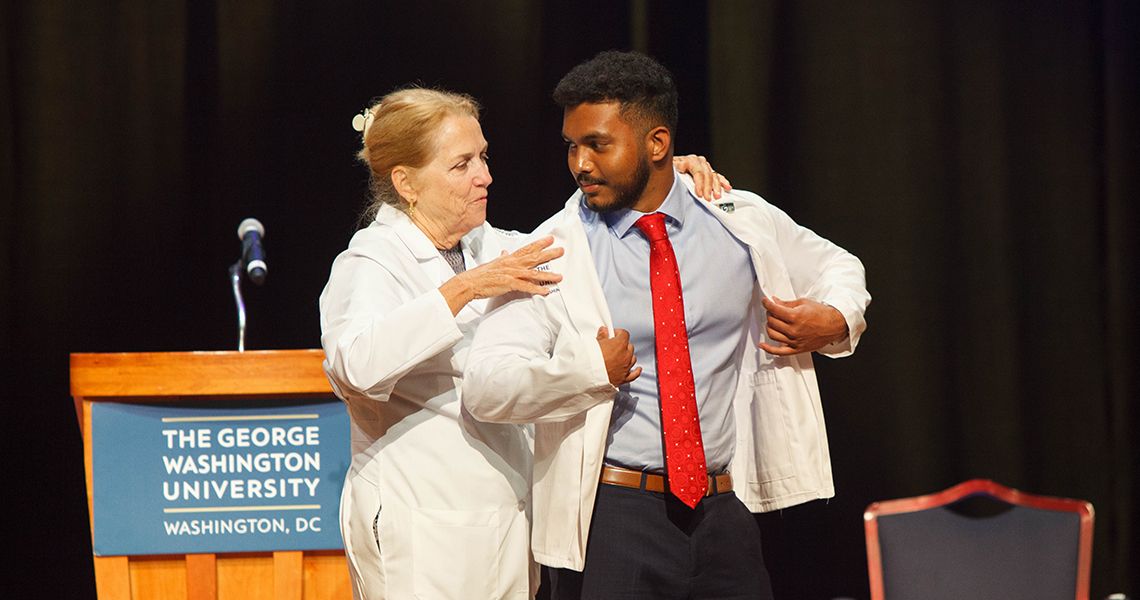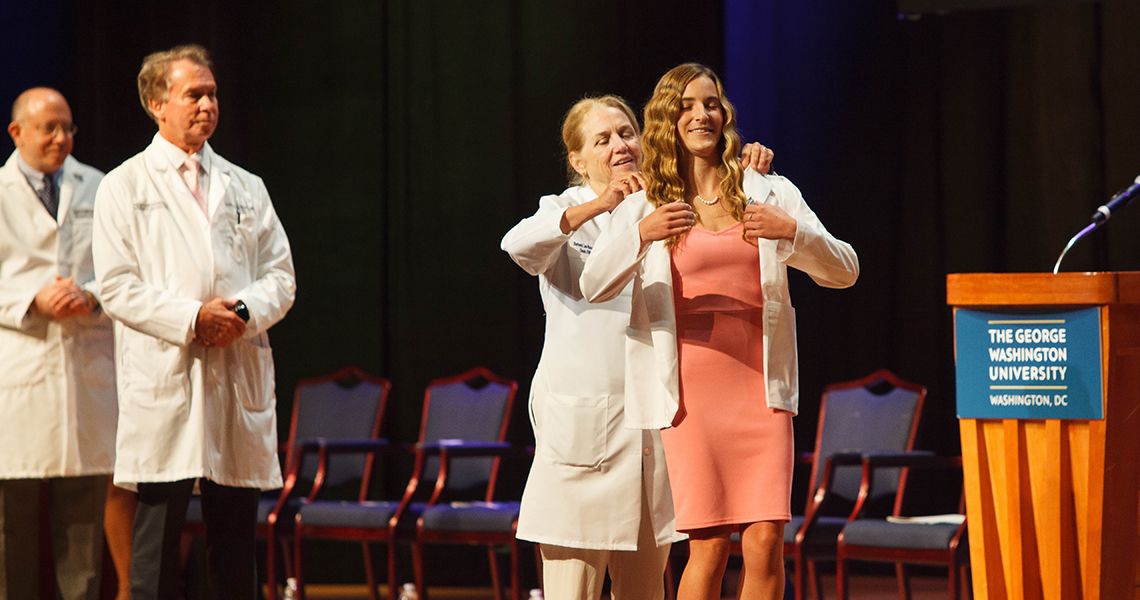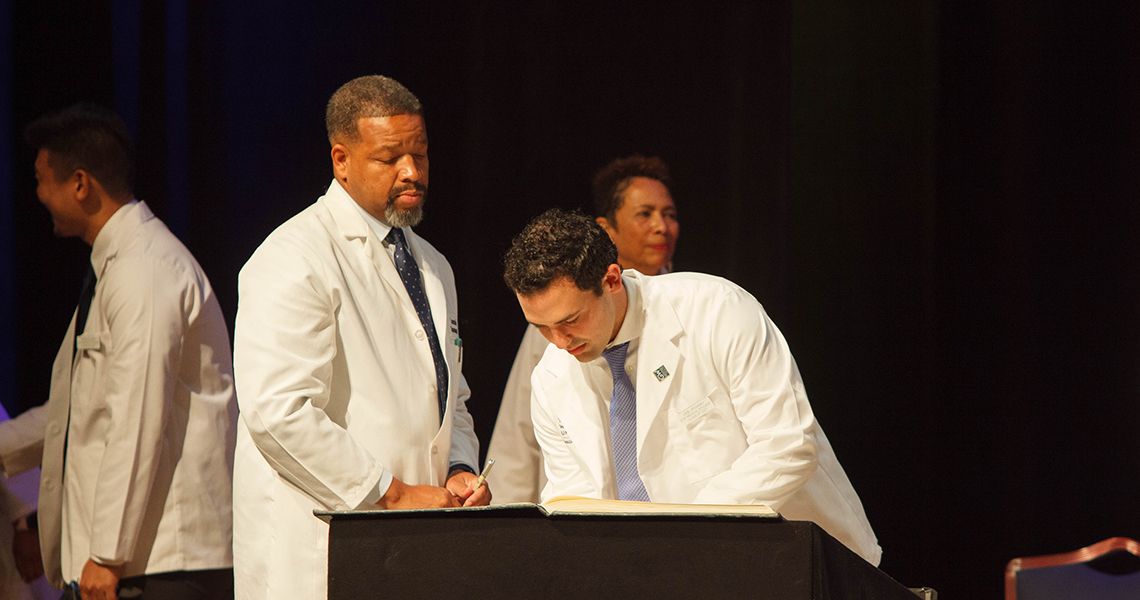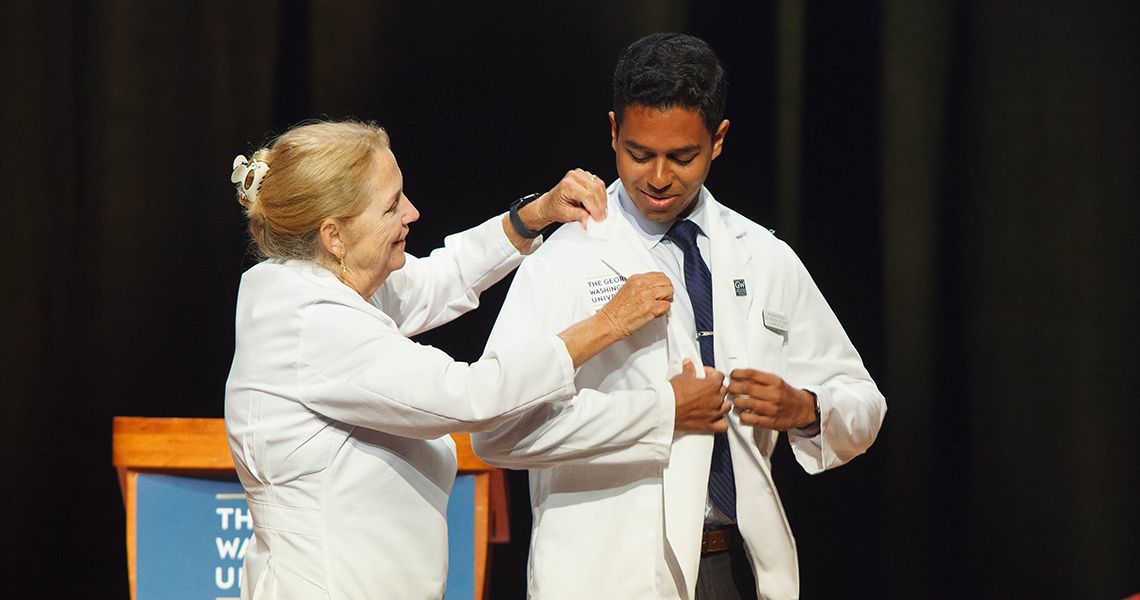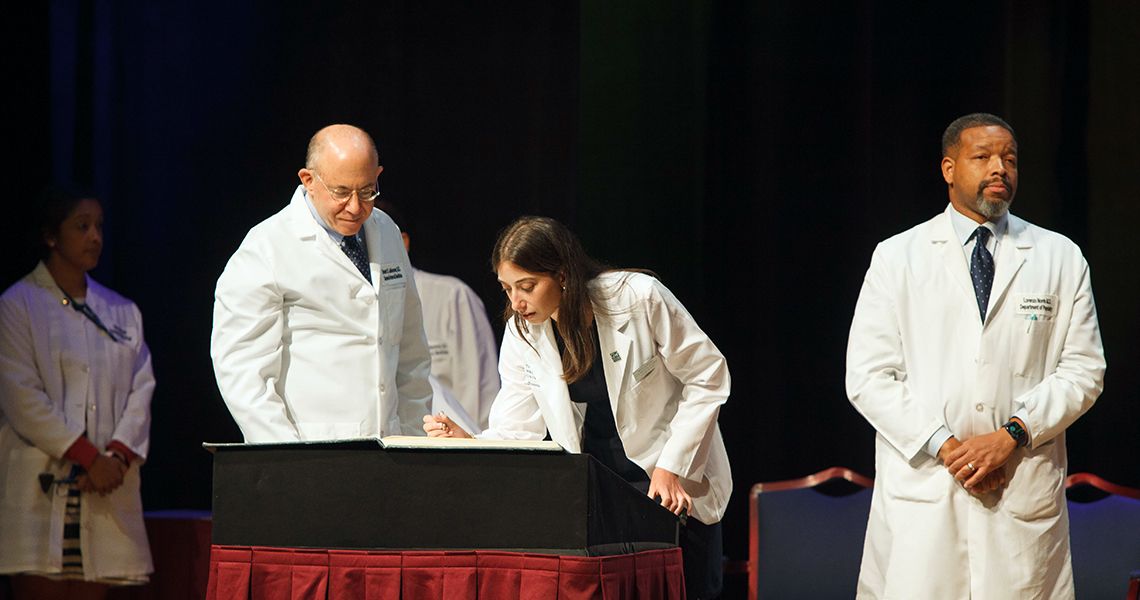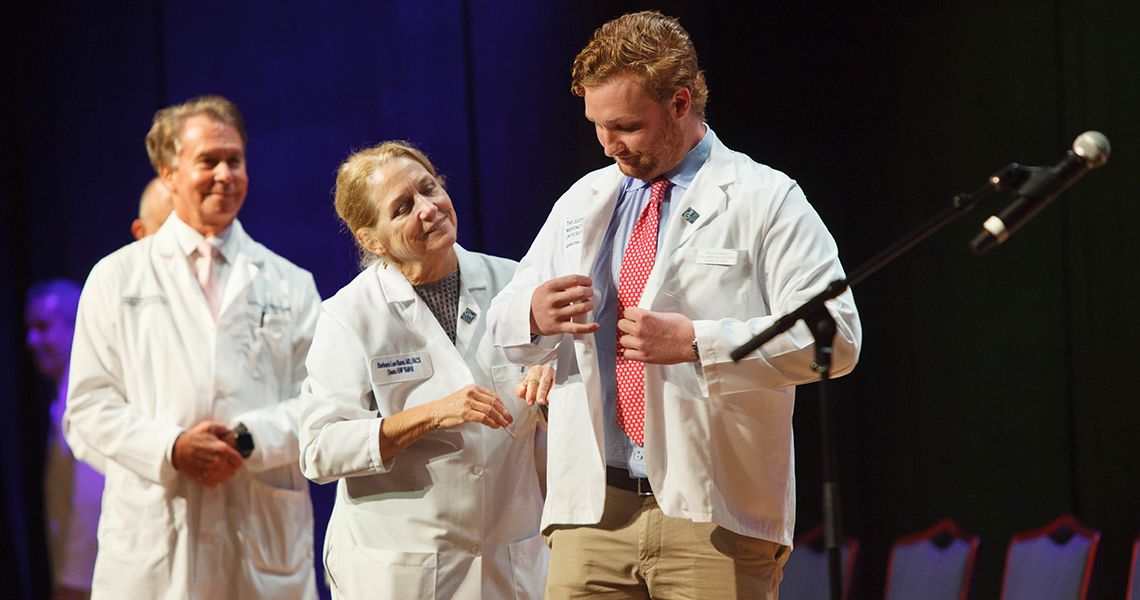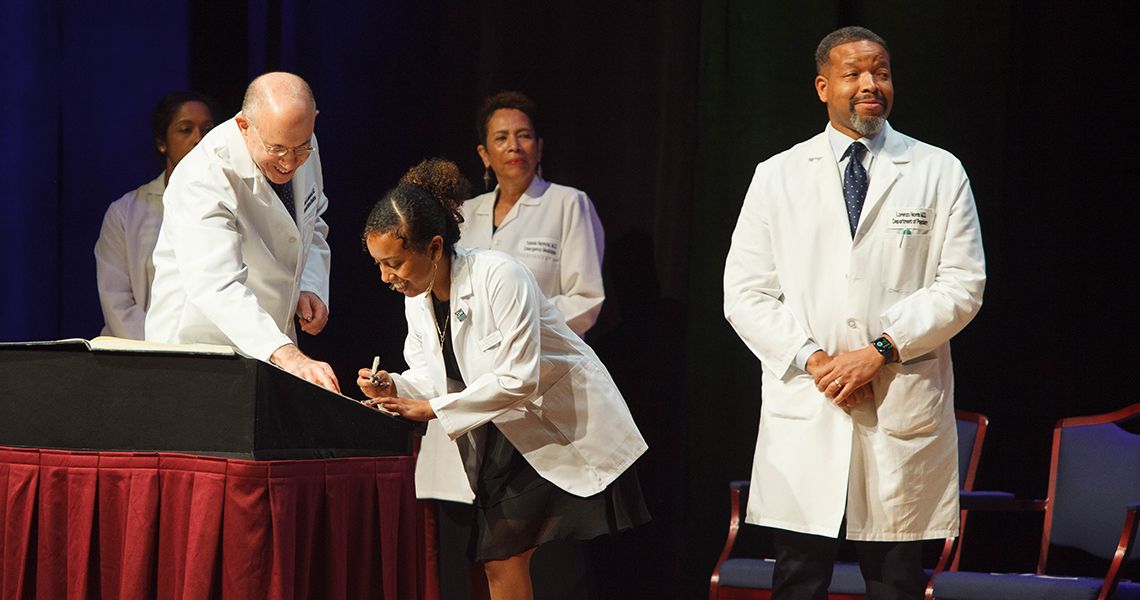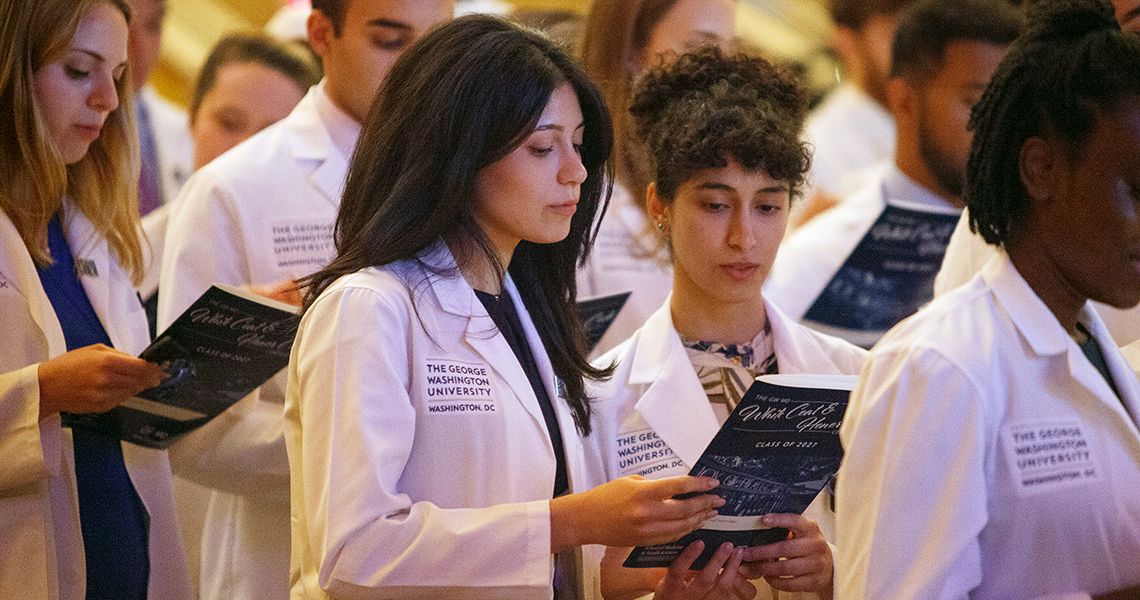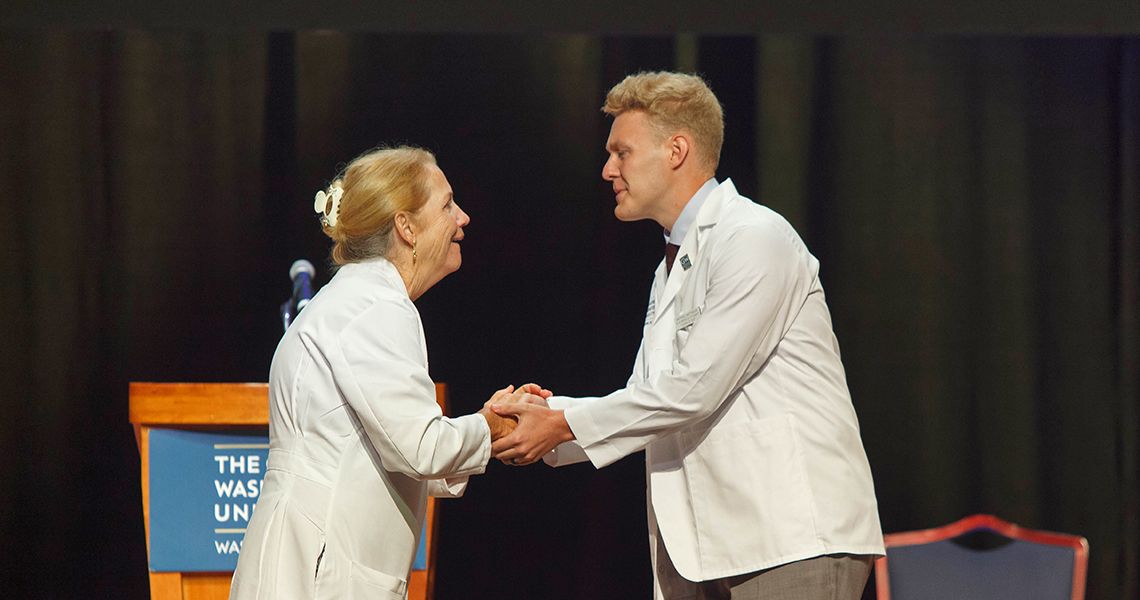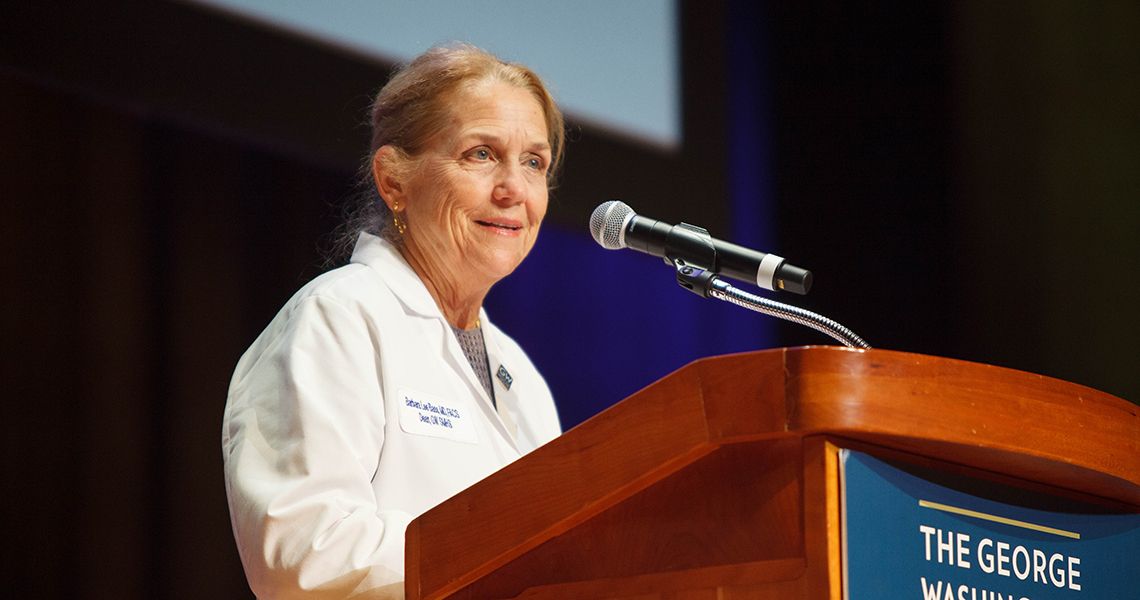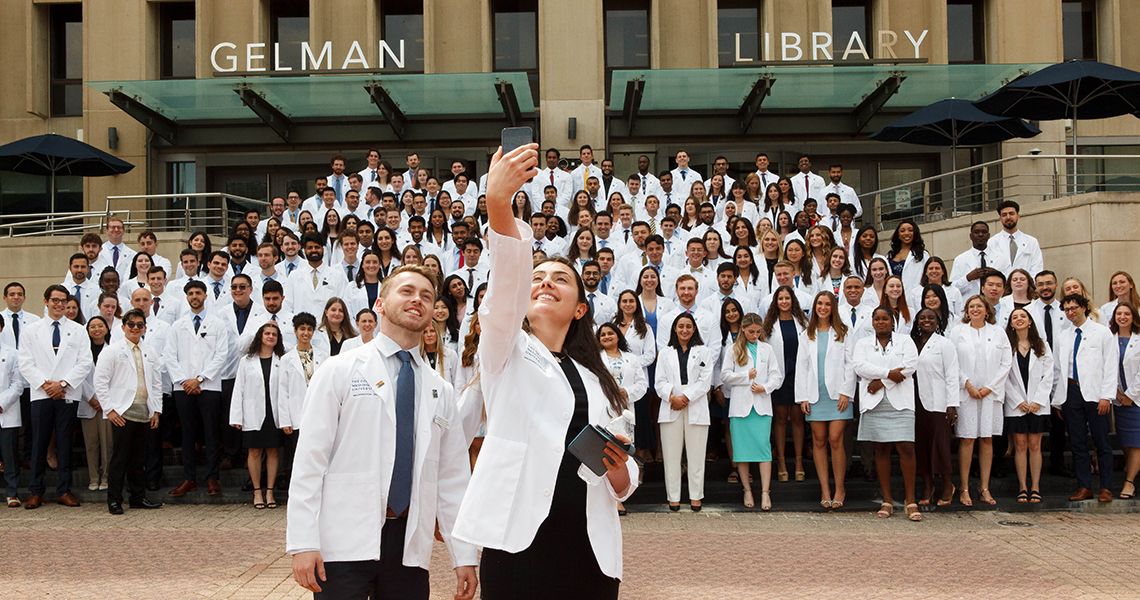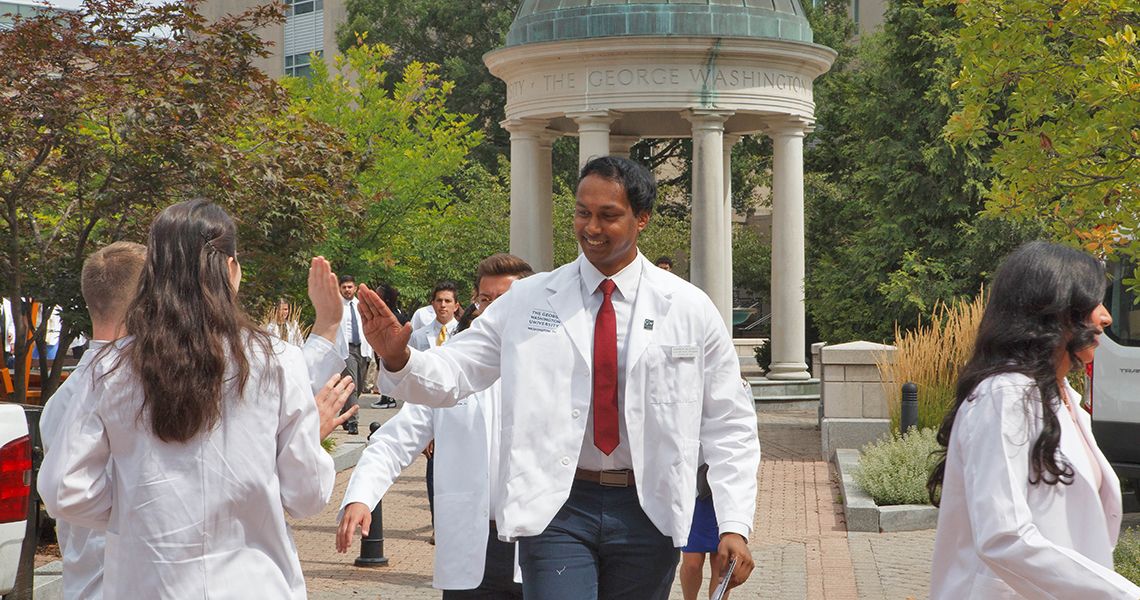A keen sense of curiosity, resilience in the face of setbacks, and an openness to new opportunities and experiences were among the early lessons for the incoming George Washington University (GW) School of Medicine and Health Sciences (SMHS) MD Program Class of 2027 during the 25th Annual White Coat and Honor Code Ceremony at Lisner Auditorium on Aug. 5.
The annual ceremony marks the first step on the medical education journey for budding health professionals; when they receive their white coats, sign the honor code, and pledge their commitment to medicine before family, friends, and future colleagues.
Second-year MD students Jana El-Sayed, Jeremy Hayward, and Kathleen McCarthy, this year’s orientation co-chairs, welcomed their new colleagues to start the ceremony.
“You have come to an incredible medical school where you will form incredible relationships,” El-Sayed told the students and the auditorium packed with parents and friends. “You will learn more than you think you are capable of learning, and you will form a foundation for yourself that will carry you through the rest of your time as a physician.”
The incoming class of 185 students hail from 27 states, plus Washington, D.C., Canada, Kuwait, Bahrain, and China. The members include military veterans, Fulbright scholars, college athletes, artists, musicians, martial arts back belts, and an opera singer. All of the new students bring to GW some clinical or health service experience, some serving as nurses, doulas, EMTs, and nutritionists, while others were medical scribes, health advocates, or clinical technicians. Nearly all of the incoming class comes with a firm foundation in research, including 17% who have published work in peer reviewed journals.
In her welcome, Barbara L. Bass, MD, RESD ’86, professor of surgery, Walter A. Bloedorn Chair of Administrative Medicine, vice president for health affairs at GW, dean of GW SMHS, and CEO of the GW MFA, reflected on the solemnity of the ceremony. “When you put on that white coat for the first time, that widely recognized uniform of a physician, you are saying here and now, in front of all of us, that you’re taking on that burden, that responsibility and, yes, that enormous privilege of being a physician.”
She acknowledged that although a medical career may extract much from life, in the form of time away from friends and family, harsh human moments of life's injustices, and patients lost, “medicine also will reward you with amazing joy, knowledge, wisdom, unparalleled human connection and service to others of exceptional magnitude and personal impact. Medicine as a career is worth every minute you will live.”
Before introducing Jeffrey Berger, MD, MBA, the keynote speaker for the ceremony, Senior Associate Dean for MD Programs and Professor of Medicine Richard Simons, MD, remarked how, although medicine is a scientific practice, and GW students face a rigorous basic science education, it is also fundamentally a practical discipline. “For all of our aspirations to be scientific, medicine is not astronomy. It is a service discipline anchored in helping real people with real problems. At its heart, medicine is a humanistic discipline with a patient at the center, and this ceremony is a reminder of medicine's prime goal, which is to serve our patients.”
Simons encouraged the students to be curious and hold onto their inquisitive side throughout their careers.
“Curiosity connects physicians with their patients,” he said, “enabling them to empathize with them and participate in the feelings. One must be curious enough to know their characters, cultures, spiritual and physical responses, hopes past and social surrounds. Both the science and medicine are advanced by curiosity.”
In his keynote address, Berger, who serves as the Dr. Seymour Alpert Chair in Anesthesiology, offered five reflections to guide the class through their medical education experience.
“Number one, setbacks are common and often necessary. Setbacks inform empathy, wisdom, and leadership potential,” he said. Quoting Bill Gates, he added, “It’s fine to celebrate your successes, but it’s more important to heed the lessons of failure.”
Berger encouraged students to seek out and nourish relationships with mentors. “Dr. Jim Scott, the former dean of the GW School of Medicine and Health Sciences, once told me that 80% of the responsibility for nurturing a mentor mentee relationship lies in the mentees discretion,” he recalled. GW, he said, boasts many talented faculty, award winning researchers, educators, and clinicians. “So don’t be shy about expending some effort to develop these important relationships.”
In his next tip, Berger encouraged the class to be open to learning and growth, and urged them to explore new professional opportunities throughout their medical careers, evolving and growing as medicine does.
“Over the next few years, reflect on where you spend your time in medicine when no one’s looking,” he explained. “What aspects of practice are engaging to you? Regardless of the fact that you’ve been telling everyone you want to be a certain kind of physician since you were 6 years old, open yourself to these opportunities, it’s important that you be present in the moment.”
His final recommendations centered on work-life balance and burnout, topics that have taken on greater salience following the COVID-19 pandemic.
“Work, family, leisure, and spiritual connectivity are all important aspects of a life and deserve your attention and fulfillment,” Berger said, but cautioned against falling prey to the idea of a binary work-life dichotomy. “It pushes us to separate work from life, whereby life is implied as the embodiment of all things good, and work is relegated to the status of life enabler, merely providing a financial means to enjoy a separate life. Instead, I encourage you to balance your life inclusive of work with meaningful pursuits.”
He also endorsed regular recalibration of one’s perspective.
“As physicians, we’re often present for these awe-inspiring, sustaining moments that may be used to recalibrate our perspective, inspiring hope and childlike wonder in these moments.”
From watching as health care teams saluted active military and veterans as they exited the GW Hospital intensive care unit following bouts of COVID-19, to being present as a couple held their newborn following a seven-year journey with infertility, he said, “careers in medicine offer boundless opportunities to recharge and renew your perspective.”
